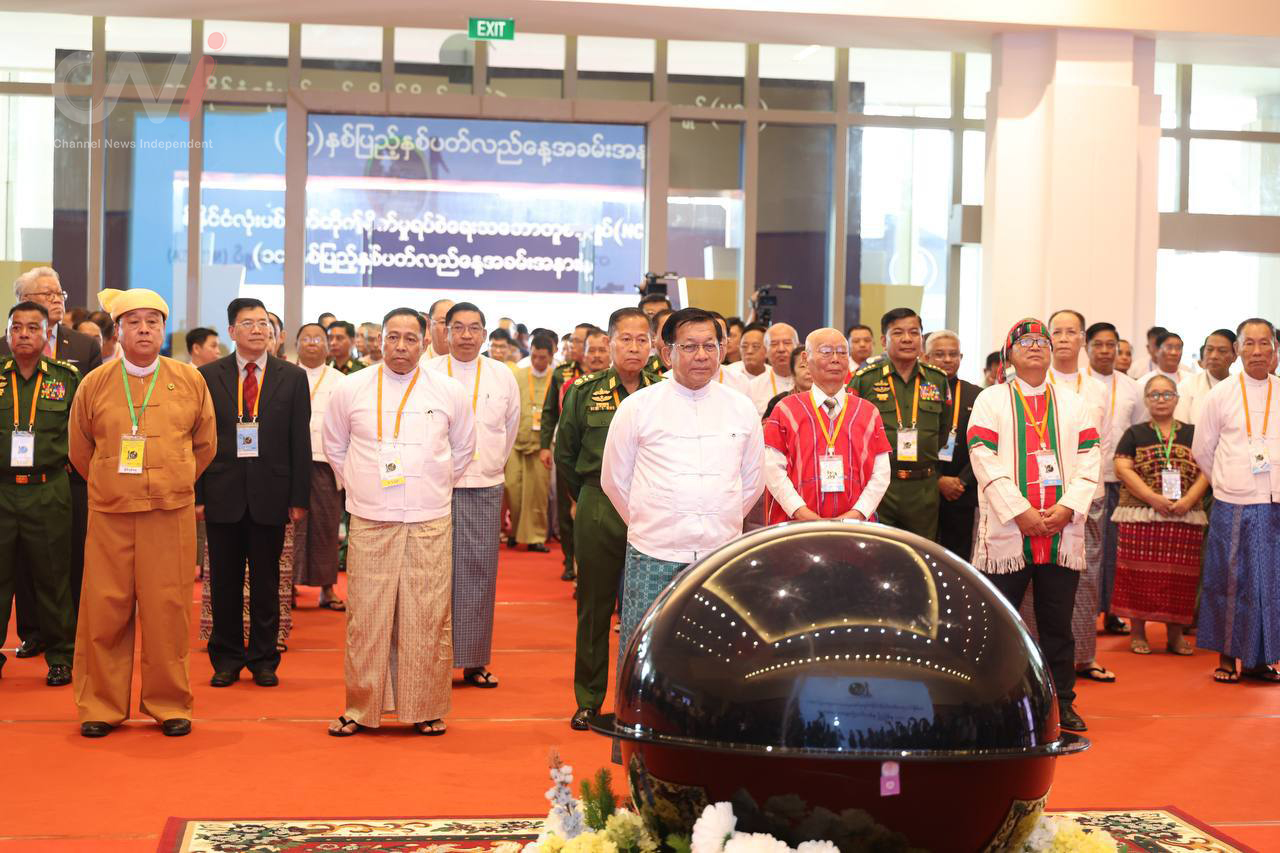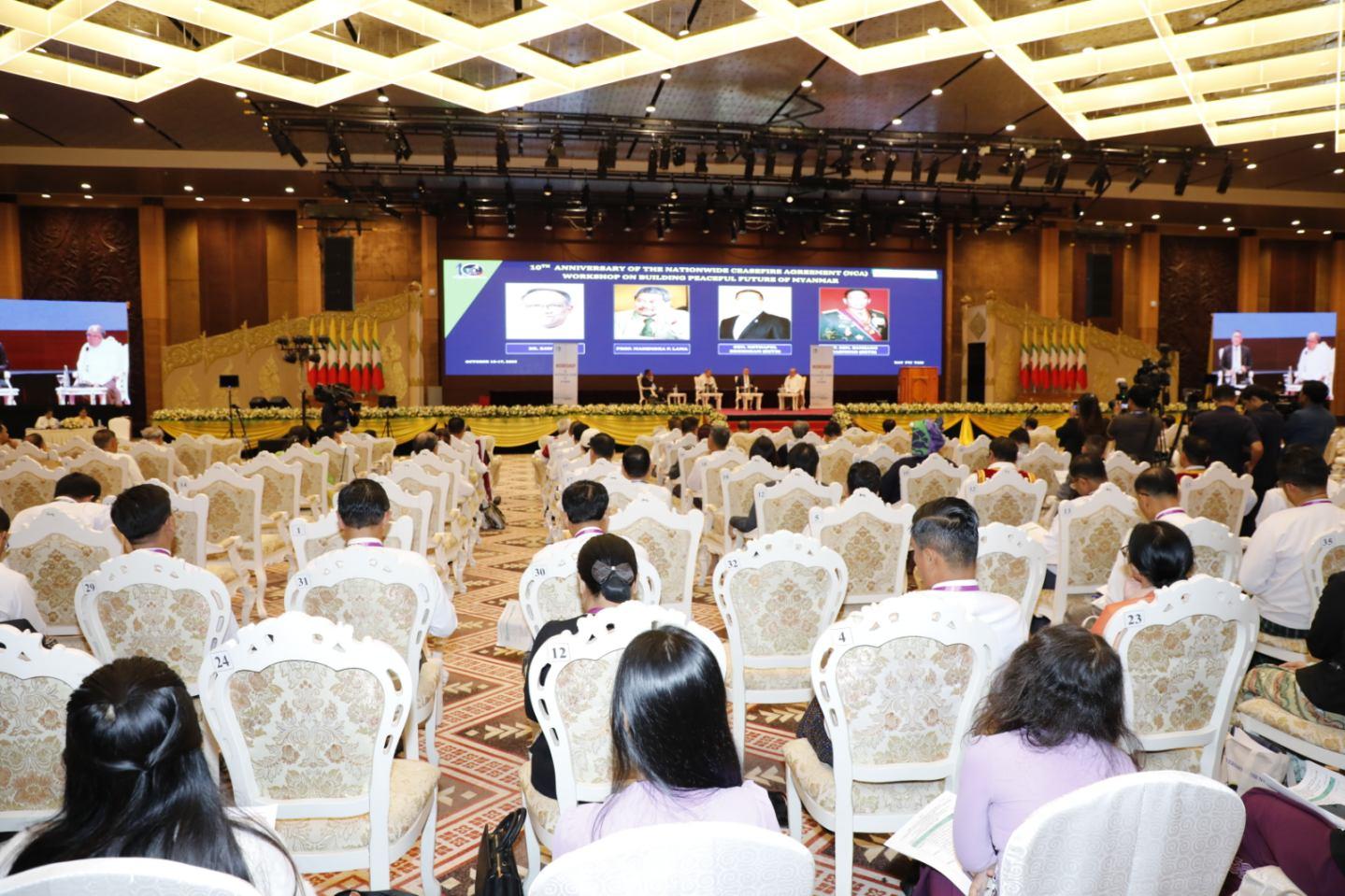CNI News
19 October 2025
Political analysts have pointed out that while all-inclusiveness in peacebuilding sounds good in principle, it may not work well if it becomes influenced by ethnic chauvinism.
They noted that in peace processes, there are diverse ideas, opinions, and approaches.
At the 10th Anniversary Ceremony of the Nationwide Ceasefire Agreement (NCA) held on October 15, Major General Zaw Min Tun, spokesperson for the National Defense and Security Council, said that genuine peace can only be achieved through mutual compromise and sincere desire for peace.
Although “all-inclusiveness” sounds appealing, U Ba Shein, Chairman of the Rakhine National Party (RNP), told CNI News that the needs and priorities of different ethnic groups, regions, and local communities vary significantly.

The 10th Anniversary Ceremony of the NCA
He explained:
“People always talk about all-inclusiveness — it’s a nice phrase, and it sounds good. But one person’s needs are not the same as another’s. In Myanmar, every region and ethnic group is different. Local people, armed groups, and leaders in these regions have their own histories, needs, and political aspirations. These things will only align if they share common goals. So, the national leadership and those in authority must analyze these complex and diverse conditions carefully. ‘All-inclusiveness’ won’t work well if it turns into a form of ethnic chauvinism. However, that doesn’t mean it’s unhelpful — it still plays a supportive role,” he said.
Major General Zaw Min Tun also stated that the government is working to ensure there are no gaps in the political landscape, as well as in the peace process. He said the ongoing elections are being organized to reestablish a democratic system, which will help fill political voids.

Peace Forum in session
U Ba Shein added that peace cannot be achieved through mass movements or populism, saying:
“There have been times when we questioned whether peace can really be achieved through populism and mass movements. However, hosting events like this one has drawn the international community’s attention to what’s happening in the country. Foreign scholars and experts will start to share their opinions and perspectives on Myanmar’s situation — and that itself will be supportive in some way. Especially, Indian professors have spoken about India’s ‘Look East Policy.’ Under this policy, India has supported development in its seven northeastern states — not only infrastructure but also addressing the needs of local people. That’s how peace was achieved there. Likewise, in Myanmar, where armed conflicts still exist in various regions, the Union government and responsible officials need to think carefully about which intellectuals, ideas, and political leaders can make the process successful. If they do, it will be beneficial,” he said.
Currently, Myanmar’s peace and ceasefire processes are being carried out under the principle of all-inclusiveness.
However, in practice, true inclusiveness has yet to be achieved, and ongoing discrimination and exclusion have continued to hinder Myanmar’s peace process.




